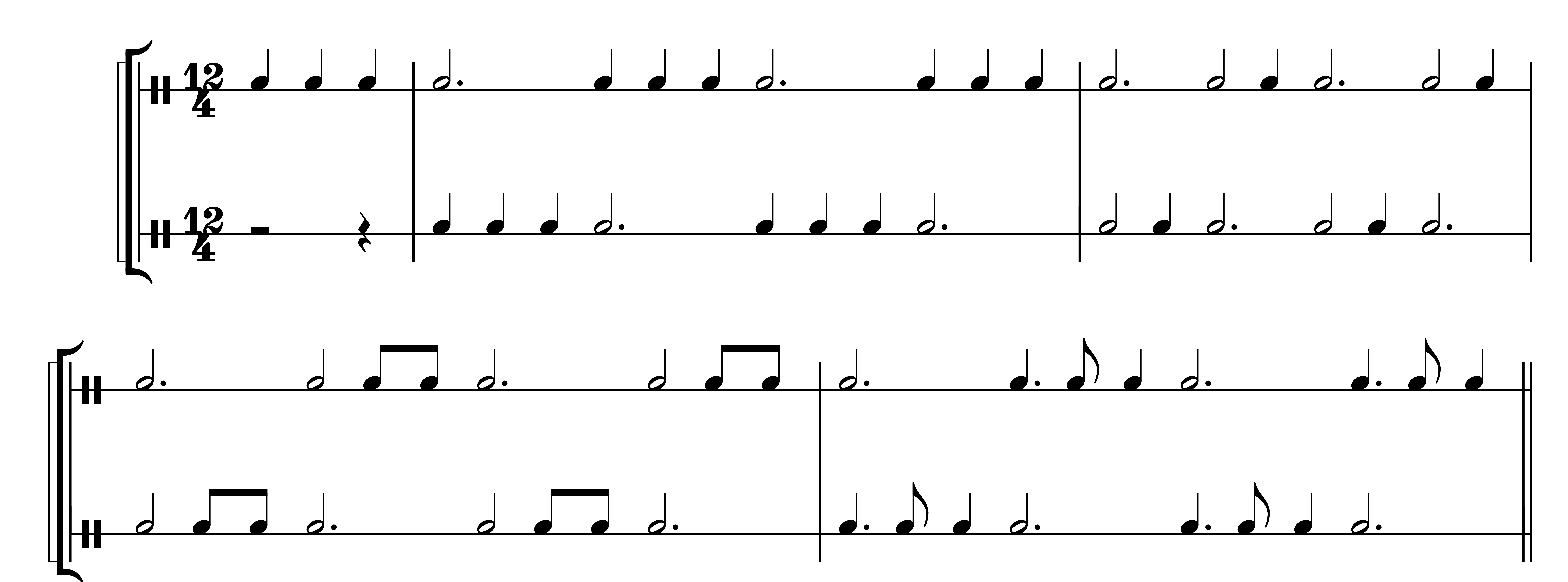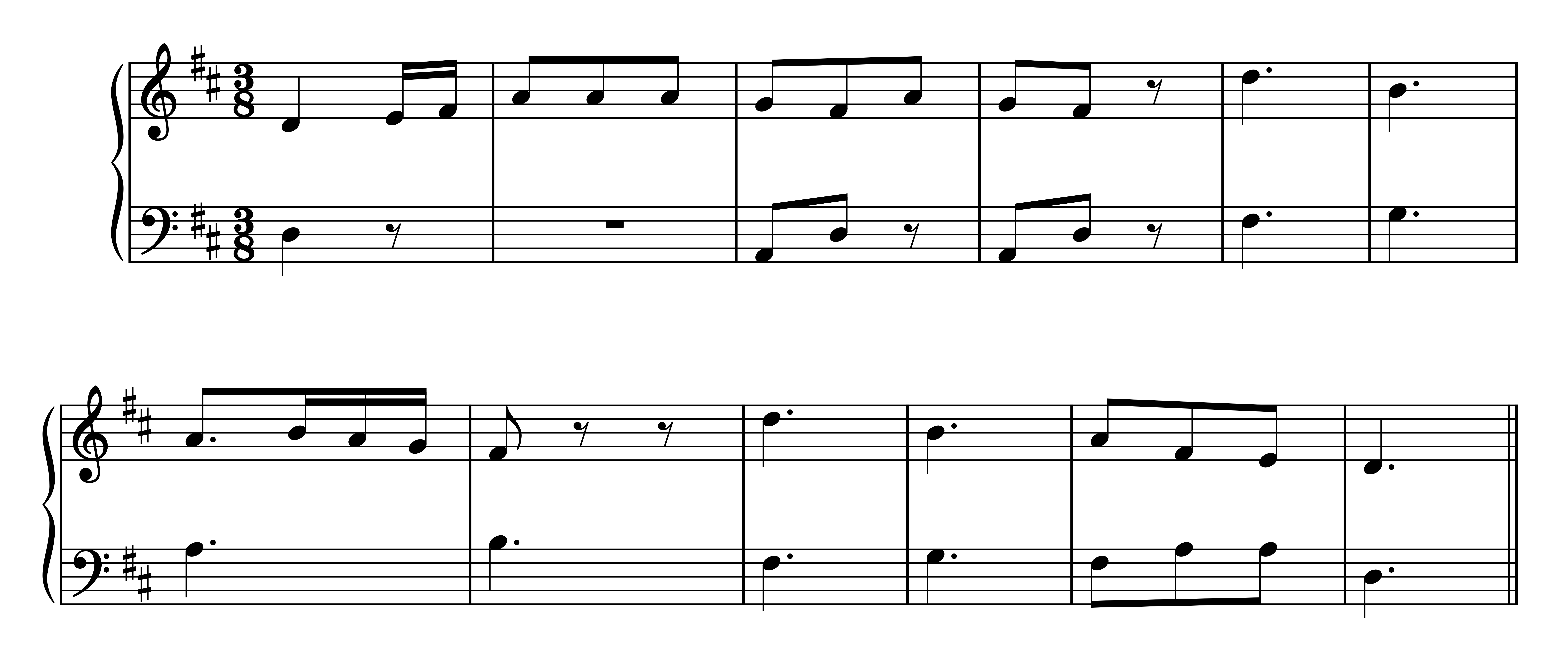Introduction to Harmonic Dictation
45 Sight Singing Assignment
Warm-Up: Seventh Chords in Context
First, play the tonic triad on the piano. Find your starting pitch in relation to the tonic triad. Using the intermediary steps provided, sing through the seventh chords. Memorize the solfege of every seventh chord, and remember: there is sometimes more than one possible harmonic context for a chord.
1. Fully diminished 7 (dd7): vii07 in minor keys

2a. Half diminished 7, also called diminished minor 7 (dm7): viiø7 in major keys

2b. Half diminished 7, also called diminished minor 7 (dm7): iiø7 in minor keys

3a. Minor minor 7 (mm7): ii7 in major keys

3b. Minor minor 7 (mm7): vi7 in major keys

4. Major minor 7 (Mm7): V7 in major keys and minor keys

5. Major major 7 (MM7): IM7 in major keys

Increasingly Difficult Rhythms
Carefully examine the divisions and subdivisions of the beat. Write in conductor’s cues for yourself if you find them useful. Conduct yourself and chant the rhythm using the syllable “Tah.” Play close attention to accuracy.
1. Examples in simple time (beat divisible by 2)




2. Example in compound time (beat divisible by 3)

3. Duet
Chant one part using “Tah” while clapping the other part. Then switch parts. Also try practicing with a partner, with both of you conducting, switching parts until you can perform both parts with ease and fluency.

Melodic Solos With Increasingly Difficult Rhythms
Conduct and sing using solfege.
George Frideric Handel, Suite No. 8, HWV 441, VII.

Frédéric François Chopin, Prelude Op. 28 No. 15, “Raindrop”

Franz Joseph Haydn, String Quartet Op. 55 No. 1, II.

Duets
Prepare with a partner, conducting and using solfege. Learn both parts.
Haydn, Symphony No. 19 Hob. I:19, III.

Franz Schubert, Piano Sonata D. 157, II.


